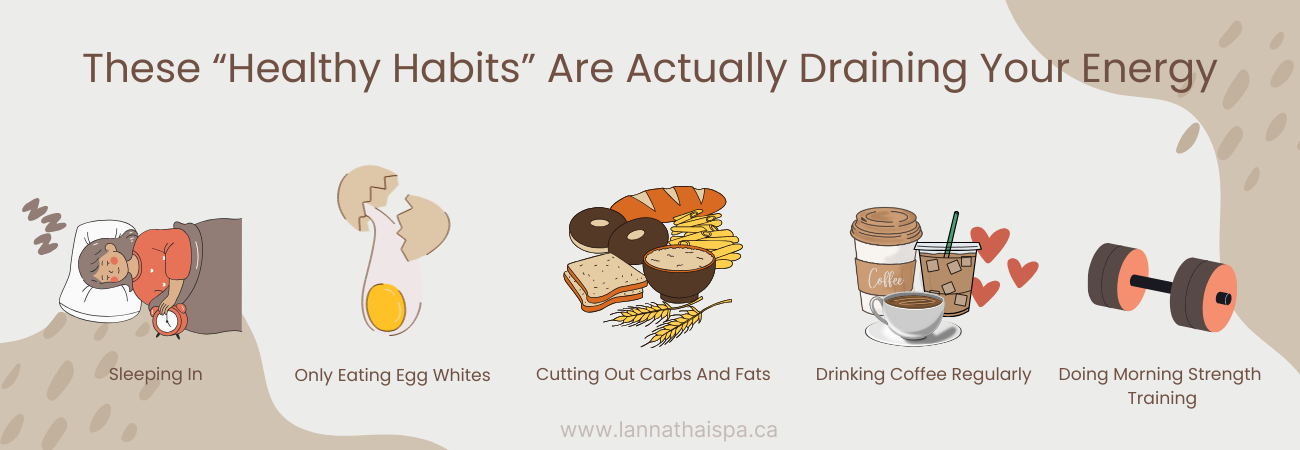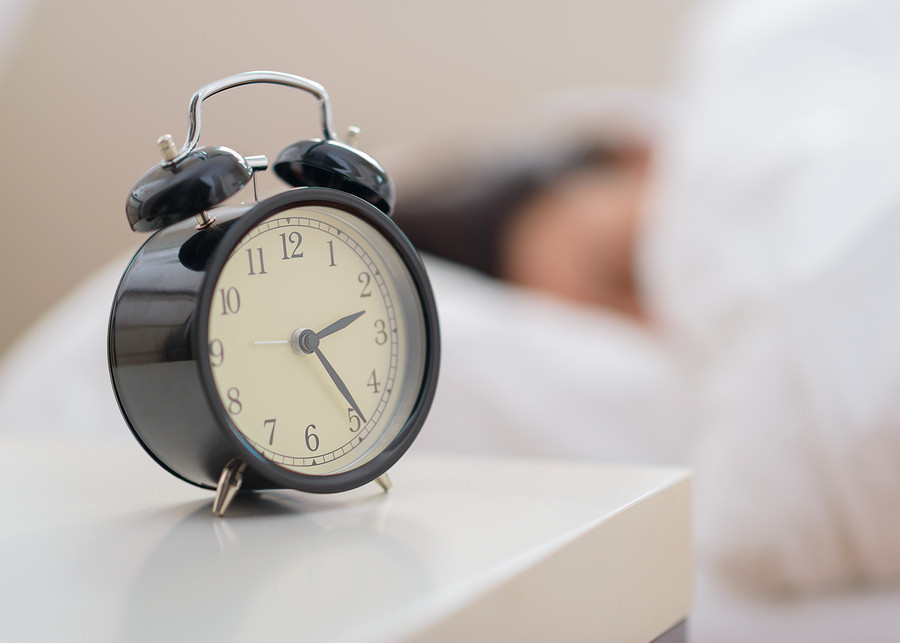Photo Credits to www.health.harvard.edu
You do your best to follow healthy habits – you mind your calories, drink healthy beverages, exercise regularly, and get plenty of sleep. But despite all these, you still feel tired, sluggish, and low on energy. How come?
You might be following some seemingly healthy habits that may be working against you. But no one’s to blame, considering the overwhelming amount of health advice out there. Like many others, you might have been confused, conflicted, or even followed a fad or a trend you saw online. It’s simply difficult to find the perfect balance to keep you healthy, rested, and energized.
The bottom line is, we all have different needs health-wise. What works for others may not work for you, and vice versa. However, there are certain habits that we all thought were healthy but were proven otherwise since then. Check out these supposedly healthy habits that are actually not good for you!
Seemingly Healthy Habits That Are Actually Not Good For You
It’s important not to believe everything you read or watch on the internet, especially if it concerns your health and lifestyle. There are plenty of “healthy habits” that are popular but not actually backed up by science. At best, you waste your time and money. At worst, they may actually have negative effects on your body.
As a guide, these are some seemingly healthy habits that were proven to be not healthy at all. If you are doing any of these things, try to remove them from your routine and see if they are the culprit why your energy is always drained.
Sleeping In
If you work a full-time job which involves waking up early every day, it’s only natural that you catch up on sleep during the weekend, right? However, you may have observed that whenever you sleep in, you wake up tired.
This is because oversleeping messes up signals in your brain. The hypothalamus, which is responsible for controlling your body’s daily cycle, sends out chemical signals throughout your body to keep all the cells on the same daily clock so that they can regulate energy accordingly. The cells get confused when you sleep in, which creates a sense of fatigue.
According to the Centers for Disease Control and Prevention (CDC), adults aged 18 and up should get 7 to 8 hours of sleep a day and not more. To get good quality sleep, be consistent with your sleeping schedule, even on the weekends. Sleeping and waking up at the same time each day promotes a high-functioning circadian rhythm that is energizing and helps maintain overall health.
Only Eating Egg Whites
You might have come across fitness personalities preparing their egg without the yolk, saying that the yoke is high in cholesterol and whatnot. The truth is, eating the whole egg actually provides more nutritional value. Egg yolks are rich in nutrients, containing vitamins A, D, E, and K, along with healthy fats, antioxidants, and minerals like iron and zinc. In addition, consuming the entire egg provides a more complete protein profile, enhancing muscle repair and growth.
Houston Methodist Hospital wellness dietitian Kylie Arrindell says “Egg whites contain a small amount of B vitamins but, for the most part, all of the other vitamins, minerals and antioxidants found in a whole egg are lost if we’re just eating the whites. For instance, egg yolks naturally contain vitamin D. Not many foods do – it’s part of the reason a lot of Americans are vitamin D deficient – and the more you can get a naturally-occurring source of vitamins and minerals directly from food, the better.”
Cutting Out Carbs And Fats
Somehow, many of us were led to believe that carbohydrates and fats are bad for the body, especially if you’re trying to lose weight. This is simply not true. In fact, cutting out carbs from your diet is the quickest way to exhaustion.
It’s a matter of choosing the type of carbs and fats you consume. Cutting out cake, pastries, and soda is one thing, but you should focus on complex carbohydrates that come from natural, whole foods like vegetables, barley, quinoa, legumes, potatoes, oats, beans, and olive oil. It’s simple or refined carbs that you should have less of or avoid completely. They come from processed foods like candies, cookies, syrups, soda, and white bread (or anything made with white flour.
It’s similar when it comes to fats. Incorporate more healthy fats into your diet which you can get from foods like oily fish, nuts and seeds, avocados, natural yogurt, and whole eggs. On the other hand, eat less foods with a high content of saturated fats such as red meat, full fat dairy products, butter, and baked goods.
Drinking Coffee Regularly
Coffee is a delicious drink, but is actually an energy drainer when consumed in excessive amounts. Many start their day with a cup of coffee, and drink a few more cups throughout the day to get energized. Coffee is supposed to keep you energized, so why do you wake up feeling tired? According to the Food and Drug Administration (FDA), people can drink 4 or 5 cups of coffee per day as this amount is generally not associated with dangerous, negative effects. However, there is wide variation in both how sensitive people are to the effects of caffeine and how fast they metabolize it.
This amount may not have negative health effects, but it can seriously disrupt your sleep/wake cycle, which is critical for maintaining energy during waking hours. Caffeine blocks adenosine, a chemical in the body that regulates our sleep/wake cycle, quickly leading to tiredness. If you’re a big coffee drinker, try drinking less cups in a day or consider switching to decaf or green tea and see if it helps with your energy.
Doing Morning Strength Training
Starting your day with a fitness session couldn’t feel more healthy. But if you’ve noticed that you have less energy than you expect for your morning strength training, here might be what’s up. Aside from your muscles being tighter in the morning (having been immobile during sleep), strength training in the morning clashes with the natural rhythms of your muscle-building hormones.
Consider doing gentle stretches or a yoga session in the morning instead. Or if you’re into action, try aerobic and cardio exercises to avoid overtaxing muscles that aren’t metabolically prepared for heavy resistance.

Conclusion
Now that you have an idea of some seemingly healthy habits that are actually draining your energy, you can make adjustments to your lifestyle and see if your energy comes back. Now that you have an idea of some seemingly healthy habits that are actually draining your energy, you can make adjustments to your lifestyle and see if your energy comes back.



